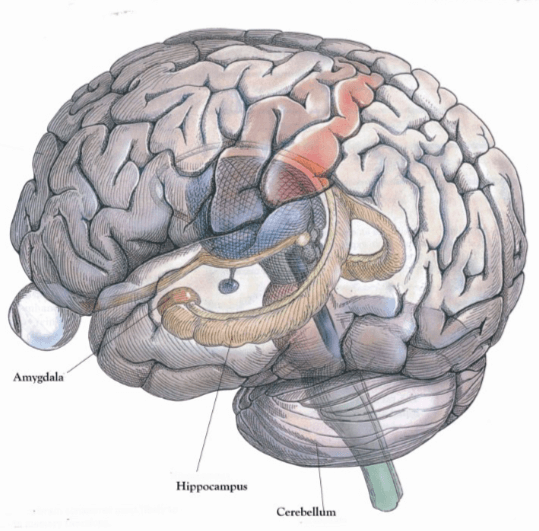The older you get the harder it naturally becomes to put the world around us in order. But the human brain adapts. At the end of this article you’ll find 6 steps to help your brain adapt even better.
In order to process the massive amount of information you receive daily—and every day this amount is growing by leaps and bounds—your brain builds file cabinets. Brains categorize into physiologic files.
This understanding comes from neuroscientists at the Ruhr-Universität Bochum.
They looked at the way brains categorize factoids into “cranial files” and how this capacity varies throughout phases of a lifetime.
Younger brains file fast. Older brains place info in and retrieve it out more sluggishly. An older brain has a harder time “opening” and “using” stored info files.
But nature is strategic. Older brains adapt. How? By becoming more attentive to detail.
This means that as you get older you develop enhanced skills for attentiveness.
You pay more attention to what’s in front of you. You look more “closely” especially in comparison to younger people who tend to see less well, details in front of them.
This speaks volumes for seniors in the workplace. They can be slower in reaction time or speech but they are less prone to mistakes and tend to perform jobs more thoroughly.
This means the human brain is designed, to a certain extent, to be able to slow down certain negative effects of aging.
You can improve your brain adaptation skills even more by these 6 steps.
- Your brain is basically a bag of omega fatty acids and B vitamins that are both “run” by hormonal signaling. Consume healthy fats such as fish and seed oils, take healthy fish oil supplements, eat seeds and nuts that are not ground ahead of time (grind your own flaxseed right before eating) and take “activated” B vitamins at least several times a week. As we age we digest less efficiently so B12 shots can also help protect your brain.
- Get your hormone levels (the entire family of hormones) checked and replaced if necessary by an in-the-know practitioner. Hormones “drive” brain plasticity and function. The brain is flush with receptors (satellite dishes) that receive hormone signals to turn on and off genes inside brain cells to keep them thriving. Receptors are all throughout the brain for estradiol, estriol, testosterone, thyroid, progesterone, oxytocin, cortisol, insulin and more.
- Consume less refined sugars and carbs as they tamp down the fuel to the brain as we age and rinse B vitamins out of the brain.
- Exercise with high interval bursts (30 second to several minutes) that expand your blood vessels and overtime, rev your neuroplasticity.
- Chronic stress upregulates proteins (the transglutaminase 2 type) that inhibit chemicals that promote better brain control. If you are stressed figure out how to minimize it’s effects (such as exercise, dance, yoga, meditation, or intention toward more mindfulness) and work to get rid of the stressors.
- Engage your brain in details to become better at them through healthy mind games, projects or reading new ideas that stretch you in a way that you have to grasp the details of the new data
Sabrina Schenk, John P. Minda, Robert K. Lech, Boris Suchan. Out of sight, out of mind: Categorization learning and normal aging. Neuropsychologia, 2016; 91: 222 DOI: 10.1016/j.neuropsychologia.201

